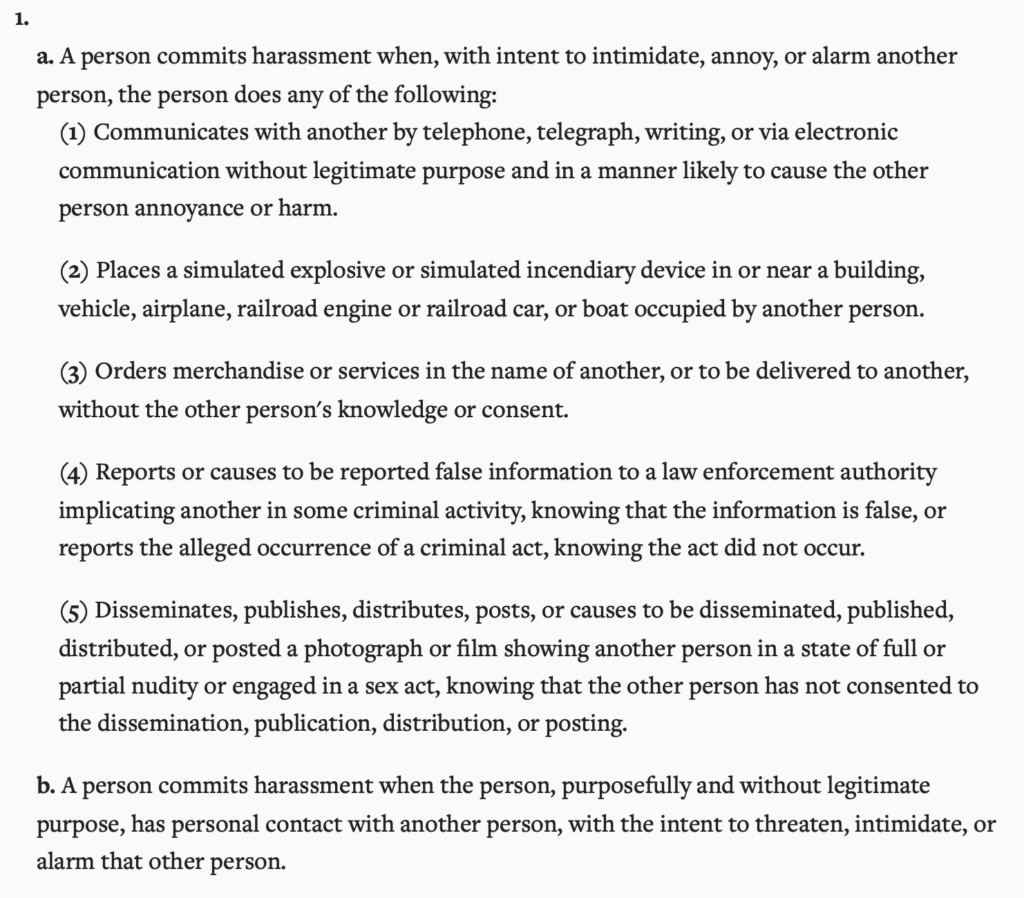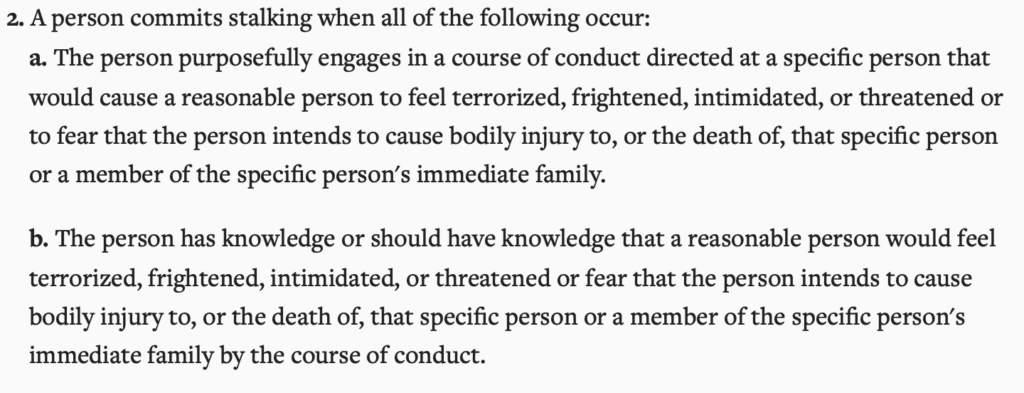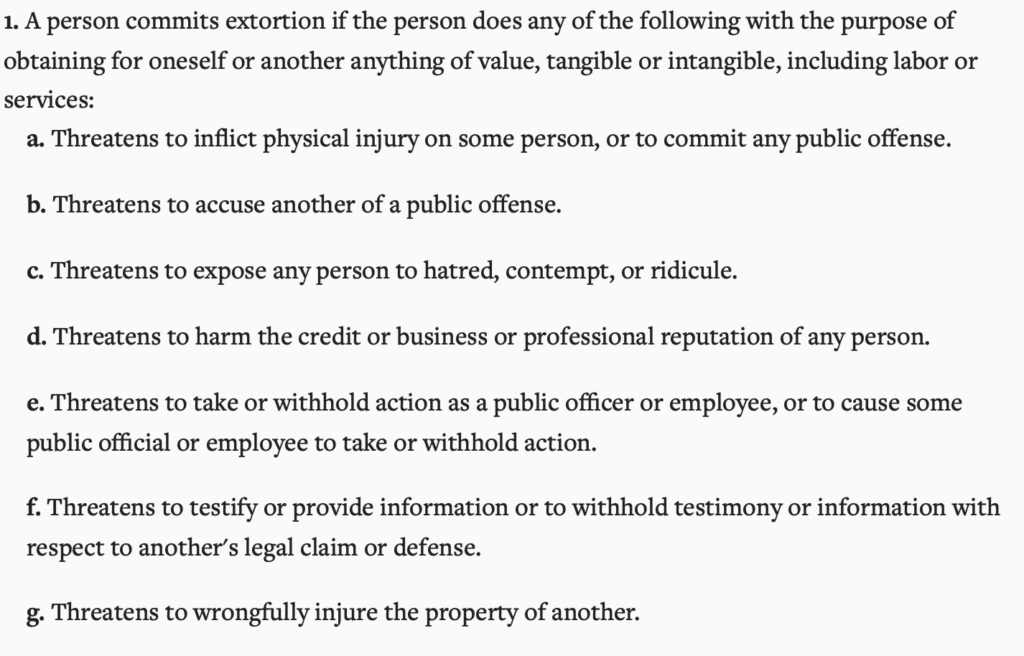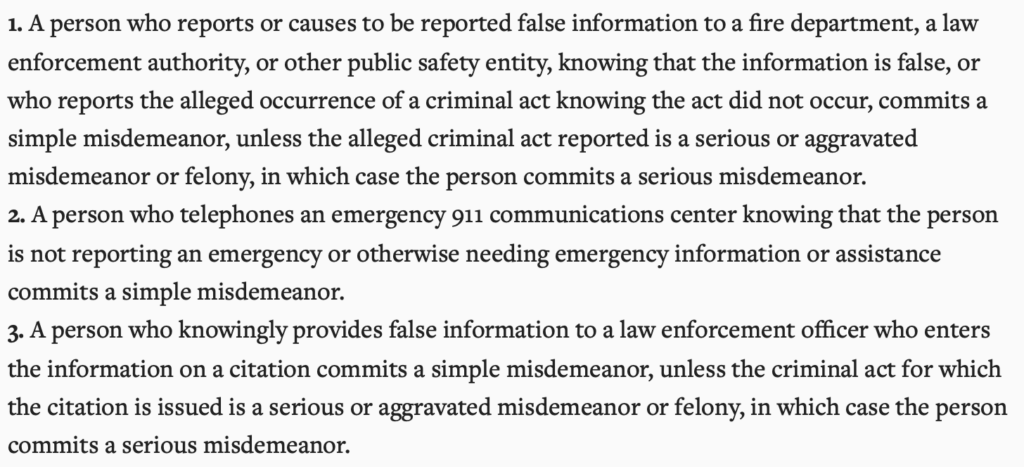Is Doxxing Illegal In Iowa?
Laura Martisiute
Reading time: 5 minutes

Table of Contents
Residents of Iowa who are concerned about online privacy might wonder: Is doxxing illegal in Iowa?
In this guide, we’ll examine the legality of sharing personal information without your permission in Iowa and doxxing-related activities that are definitely against the law in this state.
Is Doxxing Illegal in Iowa?
There’s no law against doxxing in Iowa. That said, the act of doxxing someone (or sharing their personal information without their consent) could potentially lead to several activities considered illegal in the state.
Doxxing Related Activities That Are Illegal in Iowa
Once someone has access to your personal information, you can find yourself vulnerable to harassment, stalking, extortion, identity theft, and swatting, all of which are considered crimes in Iowa.
Harassment
When someone repeatedly emails or calls you for no reason beyond the intent to intimidate or annoy you, shares revealing photos or videos about you, or makes a false report about a crime you didn’t commit, they could be found guilty of harassment (Iowa Code § 708.7) in Iowa.

In most cases, it’s considered harassment in the third degree, coming with up to 30 days in jail and a $855 fine.
If the harassment involves a threat to commit bodily harm, it’s elevated to harassment in the second degree, penalized by up to one-year imprisonment and a $2,560 fine.
Lastly, if it’s paired with a threat to commit a forcible felony, it’s harassment in the first degree, amounting to up to two years in prison and a $8,540 fine.
Stalking
Repeatedly engaging in terrorizing, frightening, or intimidating behavior that leads you to fear for your safety is considered stalking (Iowa Code § 708.11) in Iowa.

Stalking like this is typically punishable as a Class D felony, equating to up to five years imprisonment and between $750 and $7,500 in fines.
Stalking comes with a Class C felony when it includes a dangerous weapon, the victim is under 18, or if a technological device is used in the offense. That’s punishable by up to 10 years imprisonment and between $1,000 and $10,000 in fines.
Extortion
Forcing someone to do something against their will by threatening them with injury, public ridicule, or financial ruin is committing extortion (Iowa Code § 711.4) in Iowa.

Extortion is a Class D felony, coming with up to five years imprisonment and a fine of between $750 and $7,500.
Identity theft
Using someone else’s personal information to acquire financial gain or other benefits is considered identity theft (Iowa Code § 715A.8) in Iowa.

If the amount stolen is less than $1,500, it’s an aggravated misdemeanor. That’s penalized by up to two years in jail and/or between $625 and $6,250 in fines.
In situations where the amount involved is between $1,500 and $10,000, it’s a Class D felony, bringing with it up to five years in prison and/or between $750 and $7,500 in fines.
Lastly, if the amount stolen is $10,000 or more, it’s a Class C felony, which can result in up to 10 years of prison time and/or between $1,000 and $10,000 in fines.
False reports to or communications with public safety entities
Swatting, or calling emergency services (including law enforcement) to prompt emergency response, is punishable as making a false report to a public safety entity (Iowa Code § 718.6) in Iowa.

Making the false report to 911 is a simple misdemeanor, coming with up to 30 days in jail and between $65 and $625.
If the offender makes the report to a law enforcement officer, it’s also a simple misdemeanor unless the crime they’re reporting is a serious or aggravated misdemeanor or felony, in which case it becomes a serious misdemeanor.
That’s punishable by up to one year in jail and between $315 and $1,875 in fines.
Is Doxxing Illegal at the Federal Level?
Generally speaking, there is no legal protection against doxxing at the federal level. That’s partly due to the large amount of personal information available on the internet, much of it coming from social media platforms and data brokers.
Several states, including Arizona, California, and Illinois, have created their own anti-doxxing laws to protect their residents, recognizing the dangers of doxxing. Other states are considering them.
Whether doxxing is illegal where you live or not, making yourself less doxxable is important to limit the opportunities people have to acquire and share your information. Once the information gets published online, it can be difficult to remove it.
How to Protect Yourself Against Doxxing In Iowa (And Elsewhere)
To make yourself less doxxable, you should begin by doxxing yourself.
While that may sound paradoxical, it will give you the best idea of where your personal information is turning up online and inform you of the steps you should take next.
To get started, follow our step-by-step guide on how to dox yourself using this list of doxxing tools.
For most people, shrinking their online footprint will involve several steps, including:
- Changing your social media settings from public to private to prevent your posts from being seen by a general audience (here’s how someone could doxx you on Instagram).
- Removing your personal information from Google’s products, including Search and Maps.
- Opting out of data brokers, which are companies that sell your personal information for a small fee. You will need to opt out of every data broker with a profile on you, and you will need to repeat the process regularly – data brokers routinely reactivate profiles when new information is found. Alternatively, you can subscribe to a data broker removal service such as DeleteMe to handle opting out for you.
- Deleting old apps that may monitor your behavior and collect your personal data.
- Changing your usernames, and using unique usernames across accounts moving forward.
- Sharing less personal information online.
To find out more, check out our guide on how to prevent doxxing.
Our privacy advisors:
- Continuously find and remove your sensitive data online
- Stop companies from selling your data – all year long
- Have removed 35M+ records
of personal data from the web
Save 10% on any individual and
family privacy plan
with code: BLOG10
news?
Don’t have the time?
DeleteMe is our premium privacy service that removes you from more than 750 data brokers like Whitepages, Spokeo, BeenVerified, plus many more.
Save 10% on DeleteMe when you use the code BLOG10.

















